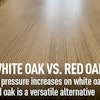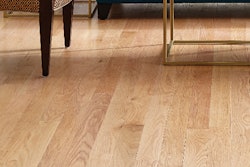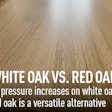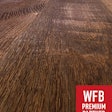Last month guest blogger Nina Cornett talked about a situation in Virginia where a landowner won a civil lawsuit on timber theft with the jury specifically including “legal costs” as part of the settlement. The Virginia Supreme Court decided that “legal costs” did not include the attorney costs, which for the “victor” in this case, was presented in court as being $250,000. The individual, who did not wish to be directly identified because of continuing actions, reached out to me and provided me with some more details. I’m going to call this person “V” for the “victor,” although indeed that’s a dubious distinction in this case. (Of course, it could be “V” for “victim,” too.)
Q. V, thank you for telling us about your personal experience here. Can you give me the short version of what happened?
I was a realtor by trade—licensed in three states and the District of Columbia. I own a property in Virginia that I began to rehab in 2007, preparing it for sale. My forest was adjacent to a neighbor cutting timber on his land, and from 2008 through 2014, I became a victim of timber theft.
It was very blatantly done and ongoing: They cut down trees with "No Trespass" signs on them
It was very blatantly done and ongoing: They cut down trees with "No Trespass" signs on them, using a bulldozer to tear up concrete cattle guards and a bridge, chainsawing through board fencing having a "No Trespass" sign on it—and even telling me in an e-mail that they removed my "No Trespass" signs and I could find them in my mailbox. I had to have four surveys done as the damage was ongoing and among other things, the boundary markers and fencing were removed or moved. The larger trees taken were not even close to the boundary—it was clear and deliberate encroachment. The ongoing and variety of actions taken made the court case complicated and confusing.
Q. That’s incredible. You couldn’t stop it?
No. Despite over 30 notifications, including certified mail, alerts to the attorney representing the timberer, numerous calls to the police, they continued. I was greatly disadvantaged dealing with local law enforcement and the local judicial system, as many of those individuals were connected with my neighbor or his attorneys. I was told I had been “good ole boyed”—they didn’t like me and wanted to teach me a lesson.
Q. What types of trees were taken?
Beautiful old oaks of more than 3 feet in diameter were taken. One was a tree with a 70-inch diameter. Many mature pines were taken, while debris and stumps were pushed onto my property and it was used as a dump by the neighbor's tree operation. Stumps were dug out so that evidence was removed. Cypresses I had specifically planted as a buffer were taken down. Some lovely pines were cut to give them access to the larger, more expensive hardwood trees. The process was ongoing and kept encroaching. It is hard to know the exact area of tree theft, as generally selective trees were taken over time.
Q. It was a long fight for you. Did you ever consider quitting?
The damage to my property and harassment was ongoing. I couldn’t quit—not without handing over my property rights to my neighbor.
Timber theft victims are often absentee landowners, the elderly, or women, many who do not understand the real value of their land assets or cannot monitor the forest condition regularly or cannot afford the expense of surveys to mark their boundaries. (These are also people who may be easily intimidated into silence.)
Did you know that the Virginia Department of Forestry put out an advisory recommending adjacent landowners clarify boundaries (which, in painful irony, was exactly what I was doing!) and in it said “Folks who do find timber stolen from their property do have recourse, however this process of doing so typically incurs such time and expense as to not justify its pursuit unless an extremely large value of timber is removed.”
I feel we have to stand up for our rights, but truthfully I had no idea what an expensive and emotional ordeal I was in for when I started. Still, no, I couldn’t quit.
Q. So tell me what happened in terms of the legal costs.
I can’t tell you how frustrating this is. I researched and relied on my attorney’s advice that included an expectation that the attorney fees were part of the damages in my case that I could be reimbursed for.
At trial, the jury was given instructions that "any directly associated legal costs" were to include all attorney fees (please emphasize that, it was in the JURY INSTRUCTIONS that ALL attorney costs and any legal costs were included). The opposing counsel signed off on the "jury instructions" before the deliberations began—it was clear to all parties what was expected. The jury found in my favor that trespass had occurred and granted me legal costs as defined in the jury instructions.
By the way, I wasn’t allowed to submit all actual costs for approval—the system required the opposition and my attorney to both agree on a figure together ($250,000), which is the amount that the jury confirmed. However after the jury confirmed it, the judge reduced that amount to only $150,000, which the opposition then appealed anyway. How they could appeal both the definition of costs they had agreed to AND a number that was less than what they agreed to previously, I can’t understand. The whole thing makes no sense. Nor does it make sense to me that they won the appeal and I have been ordered to pay some unknown portion of the costs of my neighbor’s appeal.
Q. Where are you now?
The result of my efforts and lawsuit? I got nothing. I lost my ability to earn an income as the monies expended to the lawyers were both my retirement and basis for property rehabbing and renting.
The statute, as written, means that timber theft is a fantastic bargain for loggers. The law has no "teeth" since it fails to include all costs incurred by the victim be part of the damages or to call for punitive damages. It encourages timber theft based on the economics and results in de facto eminent domain of private property for the benefit of another private landowner and the timber industry.
Oh, and just so you know, I contacted Virginia Delegate Ben Chafin's office—whose office aided in writing the legislation—and was given e-mail confirmation that attorney fees were included. Except, apparently, when they are not.
































